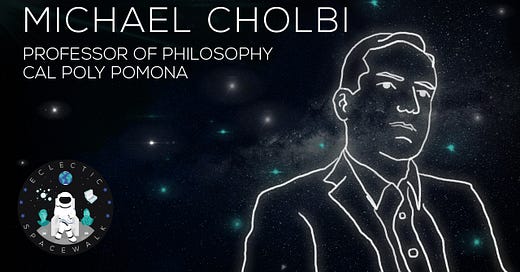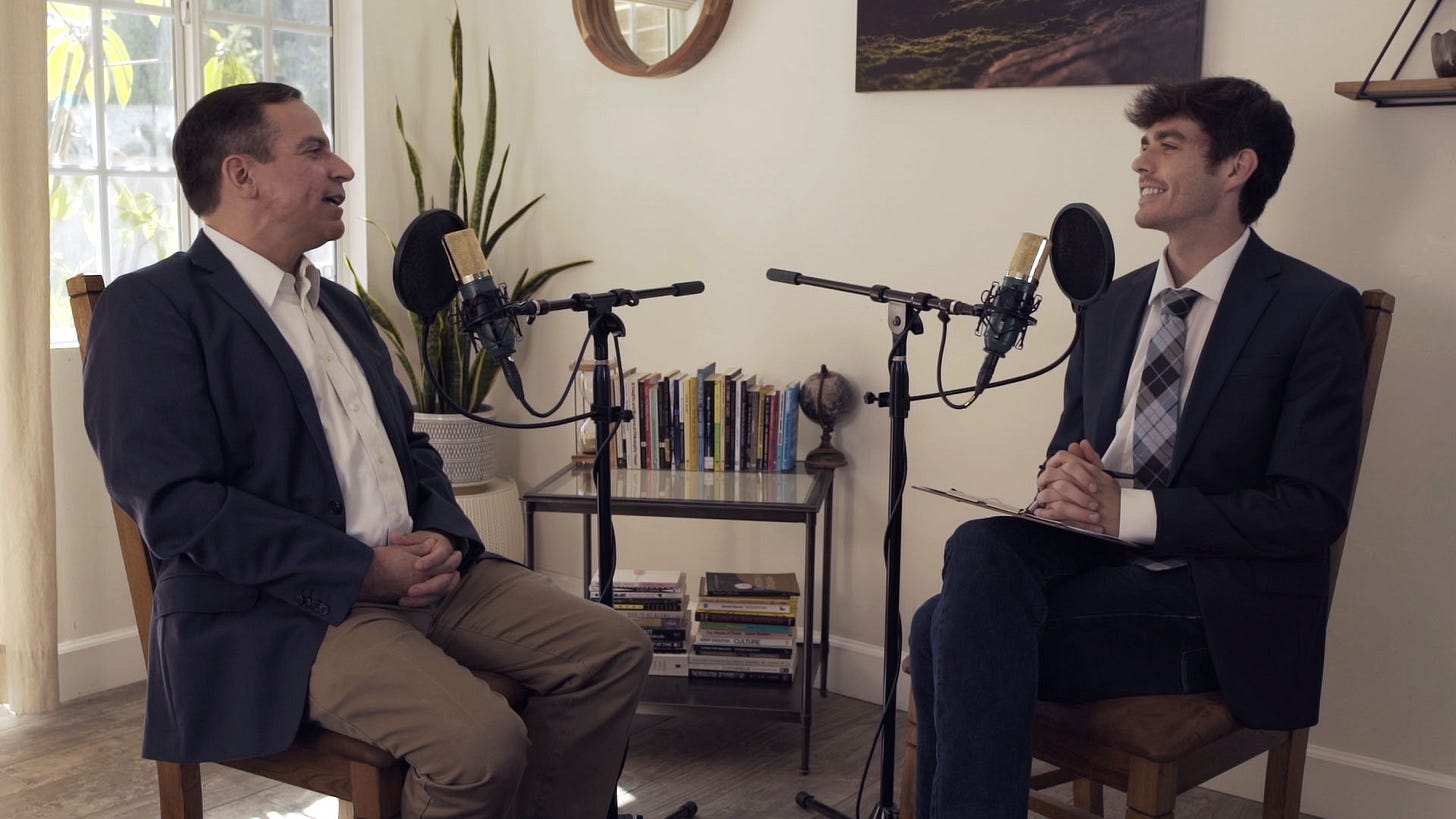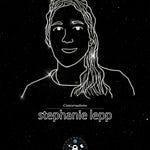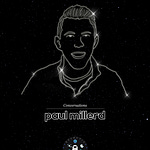A Conversation With Professor of Philosophy Michael Cholbi—
Hey Eclectic Spacewalkers!
In our second podcast recording, I sat down with Cal Poly Pomona (Now the University of Edinburgh) Professor of Philosophy Michael Cholbi. His research is primarily in ethics, with particular emphasis on suicide, grief, punishment, Kantian ethics, paternalism, work and labor, and moral psychology.
Along with teaching, he is currently the director of the newly created California Center for Ethics and Policy (CCEP). Michael is also a founding member of the International Association for the Philosophy of Death and Dying and has published over 60 peer-reviewed articles. His most noted books are Suicide, the Philosophical Dimensions, and Understanding Kant’s Ethics.
Yes, THAT Kant - the granddaddy of modern philosophy. If you are at all interested in Kant, check out my essay Object-Oriented Ontology, or OOO, which rebels against Kant’s emphasis on humanistic experience & objectivity of that associated philosophies of reality. Do you think objects have their own experience, as you now are having this experience of reading my words as a subjective entity?
Our conversation was as wide-ranging as his resume and research. We talked about his personal history toward an academic career in philosophy. We discussed the utility of grief and bereavement, which he is currently writing a book about that deals with the one true universal: our own and collective mortality. Our discussion featured his past research on death and specifically suicide. Here is his article on the philosophy of the subject for the Stanford Encyclopedia of Philosophy: https://plato.stanford.edu/entries/suicide/
We spoke of social media not being incentivized for longer conversations, but at least in our case networking is a pro for the medium. Michael and I originally e-met via Twitter, as he announced that next year he takes his philosophical talents to the seat of Scottish intellectual thought at the University of Edinburgh. He will then have finished his upcoming book focusing on the philosophy of grief as we mentioned above. You can get a little preview on the subject with his essay “The Stranger, The Saint, and Grief’s Goodness” for Four By Three magazine here: http://www.fourbythreemagazine.com/issue/death/the-stranger-the-saint-and-griefs-goodness
Our conversation also focused on the need to de-stigmatize the subjects of death, suicide, and grief in general, and instead focus on what we can learn from each of these common phenomena. Michael has been trying for years to challenge the taboo nature of those subjects, and the tide may finally be shifting for society to be able to discuss these topics openly and honestly. That is one of the reasons why he chose to do my podcast, and also why he has done other interesting avenues of philosophical information dissemination like his Reddit AMA.
I thank Michael for his time, research, and openness on the usually hushed subject(s), but as he said in the conversation, “LIGHT IS THE BEST DISINFECTANT.”
We have to talk about the things that we care about, but even more so - If we want to change them.
I hope you enjoy the conversation.
Timestamps
Where are you from? (00:20)
“My father was at D-Day” (01:48)
What were your early childhood influences? (02:52)
Were death and suicide a part of your life growing up? (06:45)
Where did you do undergrad, grad school, and Ph.D.? (10:20)
What are you most looking forward to about starting at the University of Edinburgh next year? (15:01)
“Yeah, I think that philosophy gives people, well it honors, their autonomy as people and gives them a chance to empower themselves and I think that at its best, you know, philosophy can be a really powerful source of human solidarity.” (22:16)
Philosophy and its root “Philosophia” means a “love of wisdom” NOT “wisdom” (26:37)
Has Twitter and other social platforms helped in disseminating Philosophy, or hindered it? Other subjects? (30:51)
“…I don't think there are many conversations that are designed to invite slow deliberate, self skeptical reactions. I think one of the things that philosophy should train you to be is to be a little bit skeptical about your own patterns of thought.” (33:34)
Is the peer-review process flawed, and possibly broken? (36:19)
Michael is currently the Director of the California Center for Ethics & Policy (37:46)
Is ethics only really viewed through a subjective (personal/cultural) lens? (43:41)
END OF PART ONE (45:45)
—
BEGINNING OF PART TWO (45:48)
How did you become a founding member of the International Association for the Philosophy of Death and Dying? (46:08)
“…you know philosophy can be a powerful source of understanding and solidarity and if there's anything that you know links us, it's our mortality. Right? It's one of the very few things that is a genuine human universal. So I think we all have to struggle with it a little bit and that makes it a really fecund area of not only philosophical research, but I think just sort of ordinary philosophical dialogue” (51:10)
How do animals deal with death? Do they grieve? (55:22)
How do different cultures throughout the past, and now, deal with death? (57:12)
“…I take that to be a sign that there is again a real thirst for thinking about this. I think the fact that we die differently and have a different kind of life span than people had say, you know, fifty to a hundred years ago also plays into this. We die slower. In the past, we die of, more frequently now, of chronic diseases. People know that death is coming by and large.” (59:45)
What are your thoughts on Immortality? (01:03:28)
“What can make your life pretty miserable is to be preoccupied even unknowingly with you know, your own mortality. So we don't want to be I think gripped by the fear of death, but on the other hand the antidote to that is not denial or ignorance, right? It's got to be living, acting, etc. in full knowledge in full awareness of our mortality, but without again sort of letting those aspects of it that tend to make life more of a struggle take over. And so that I think is a real tightrope, right? How do we live mindful of our mortality but not gripped by it?” (01:07:43)
Let's talk about your research into suicide (01:13:14)
“it's a somewhat transient impulse and I think that acknowledging suicidal thinking is actually a very powerful suicidal Suicide Prevention technique. It doesn't seem to me that the taboo has done much good on that score.” (01:16:10)
Medical Assisted Suicide and Euthanasia (01:21:34)
Talking about Michael’s latest book: Understanding Kant’s Ethics (01:23:36)
What is the utility of grief? (01:26:33)
“Each of us is a small trembling animal that will someday decay and die” - Ernest Becker (01:31:59)
Nick’s high school friend Jay Carisella tragically passed away, and the death ultimately shaped his worldview. (01:34:42)
If you were on the International Space Station or the Moon and the eyes of the world were on you, what would you say? (01:36:18)
Watch on YouTube:
—
Clip #1 - “Philosophia” means a “love of wisdom” NOT “wisdom”
—
Clip #2 - How do different cultures, past & present, deal with death?
—
Clip #3 - What is the utility of grief?
More on Michael Cholbi:
Website: https://michael.cholbi.com/
Twitter: @MichaelCholbi
Purchase his latest book: Understanding Kant’s Ethics
Purchase previous book: Suicide: The Philosophical Dimensions Book
Read more of Michael’s writing:
Panelist at askphilosophers.org
Contributing blogger at Psychology Today (‘Ethics in Question’)
Editorial board member for the Journal of Applied Philosophy,
Member of the board of advisors for Social Theory and Practice,
Contributing editor at the Journal of the American Philosophical Association,
Area editor for ethics at Ergo.
More on Eclectic Spacewalk:
Subscribe to Substack Newsletter
Listen to all podcasts on Anchor
Follow Eclectic Spacewalk on Twitter















Share this post